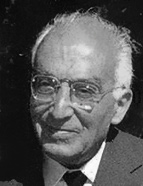

Endowed with a keen sense of history, he searched the past for the roots of various presents. In the early years of his medical studies, SDA devoted his time to the history of science and , in 1943 , published two important works on the history of surgery: Notícia histórica da cirurgia coimbrã [A historical account of Coimbra’ s surgery] , together with José Bacalhau, and Súmula histórica da Propedêutica Cirúrgica na Faculdade de Medicina de Coimbra [Historical summary of Surgical Propaedeutics at the Coimbra Faculty of Medicine] .
From analysing the detailed bio bibliography published by Joaquim Tomás Miguel Pereira in volume 31 of the Revista Portuguesa de História [Portuguese History Magazine] , we can conclude that during the 1940s and 1950s SDA focused on national political history, particularly the study of the crisis of 1383/5, a field where he produced two academic works of reference: his undergraduate thesis ( A Batalha de Trancoso [The battle of Trancoso] ) and his doctoral thesis ( A Crise Nacional dos finais do século XIV. A sucessão de D. Fernando [The National Crisis at the end of the 14 th century. Ferdinand’s succession] ). The scientific quality of his academic work, discussed in public examinations, can be seen in the high grades he obtained: 18 out of 20 for the degree and 19 for the doctorate.
During the preparation of his doctoral thesis, SDA was not spared from teaching, taking on courses where he was able to apply the knowledge he had gained from his research as part of his academic work, namely courses in the History of Portugal and other subjects which going beyond the chronological and thematic period of ‘his speciality’ required hard work to prepare: this was the case with courses in the History of the Discoveries and Expansion, in particular the History of Brazil, or the History of Civilisation. In the 1960s, he directed the Seminar on Modern Portuguese History.
This work is financed by national funds through FCT - Foundation for Science and Technology, I.P, in the scope of the projects UIDB/04311/2020 and UIDP/04311/2020.
